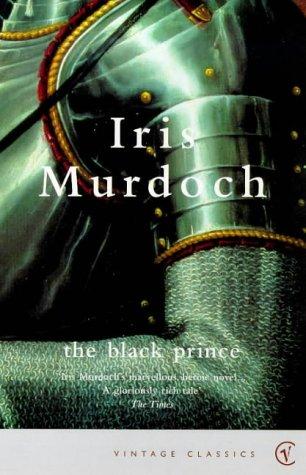
When I acquired The Sacred and Profane Love Machine I also acquired The Black Prince, and when I was disappointed by the former I was still determined to try the latter. After all, Iris Murdoch has been so effusively praised by people I respect. Maybe the first book was an anomaly.
I read a few chapters of The Black Prince and had trouble going on. Everyone was so unsavory. Everyone had a hole in their stockings and a bit of pink marbled flesh protruding. Or greasy hair. Or was pallid and sweating. I mean everyone. With one exception, the entire cast were middle aged English people, ruthlessly portrayed in all their greying sagging glory by a middle aged English novelist, the main character, Bradley Pearson. Everyone was foul and mean and preoccupied and irritable. But not in entertaining or interesting ways -- in ugly little sour ways. Halfway through the book I was just having to force myself to continue. After all, Kate Winslet played her in the movie based on her life. I owed her at least to finish the lousy book.
I will tell you that the book improved dramatically halfway through, and continued to get better and better as it bounced along toward the ending. And then I will tell you that the ending really did redeem the whole book, made it very retroactively interesting in terms of what a writer is, what fiction is, what "truth" is, what a reliable narrator is and isn't, and other complex questions.
The book is very smart, and it does at the end pull back its scalp and reveal there is a large and whizzing brain inside, which has been there all along, under that peeling, sparse scalp. The problem here is, friends, that you have to read a whole lot about the ugly and small agendas of a lot of people you'd rather not get to know, in order to understand the point that's being made about art. As to the apparently thrilling (to critics) question about whether or not the narrator is a homosexual in denial, I don't think that's really interesting or relevant. I'd rather hear more people discussing whatever the heck happened to him at the end, and who P.L. was. All that seemed much more mysterious than the gayness. But then, discussions of whether people are gay or not don't tend to fascinate me (take note, friends, this extends to Herman M.).

The Black Prince is a book I enjoyed having read, but not a book I enjoyed reading. It is an experimental book, all the more so because it appears to be a very traditional book. Things are not always as they seem -- take heart if you are toiling through this novel by choice or on order from an educator -- there will be a payoff, and it will all end eventually.